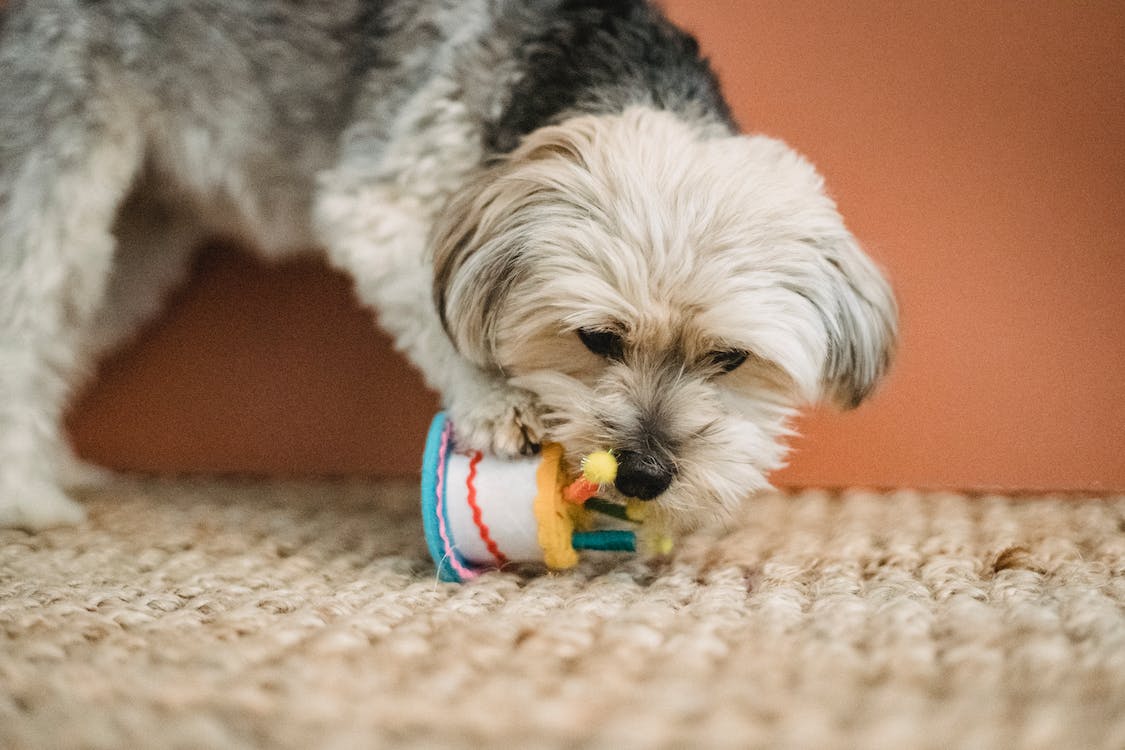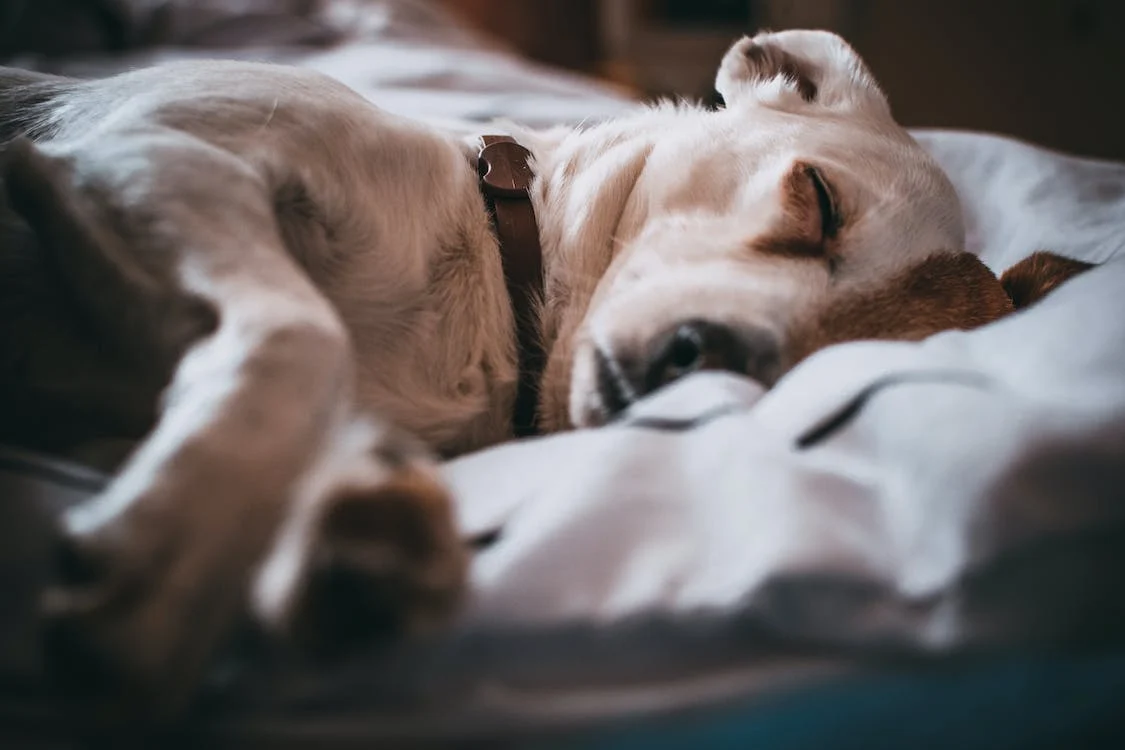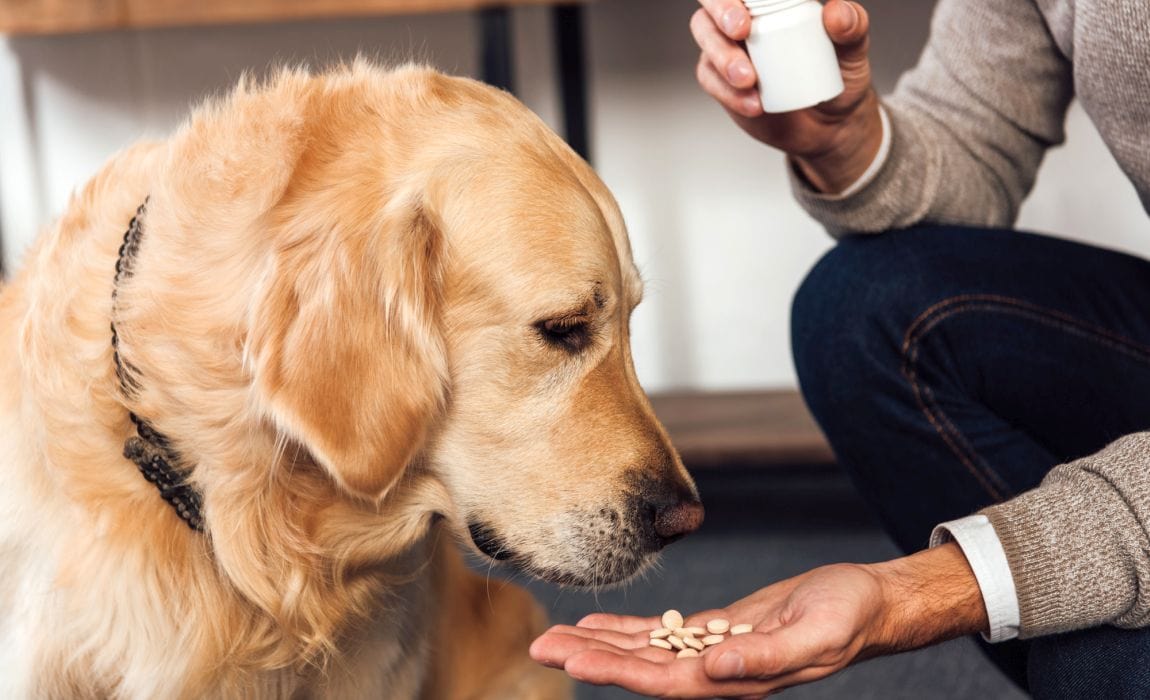As a dog parent, checking your pup’s poop is an important part of monitoring their health. But yellow balls in your dog’s poop can be cause for concern. Yellow stool is never normal and may indicate issues like dietary changes, medication side effects, infections, organ dysfunction or parasitism. While occasional yellow poop can happen, recurrences point to an underlying problem needing attention. What are some possible explanations for yellow stool? And when should you contact your veterinarian? Here, we discuss the common causes of yellow poop balls and help you determine if a trip to the vet is needed.
What Causes Yellow Stool Balls in Dogs?
There are a few possible sources of yellow poop balls:
Dietary Changes
Switching your dog’s diet, especially rapidly, can lead to intestinal upset. Drastic shifts in amount or type of fiber, fat or protein can cause stool discoloration. Yellow poop after starting a new dog food is often temporary while their digestive system adjusts.
Medications
Some dewormers, antibiotics, supplements and other meds may temporarily tint a dog’s stool yellowish. Oral antibiotics are a common culprit. This effect should resolve once the medication is complete. Always finish the full course unless otherwise directed by your veterinarian.
Gallbladder Issues
The gallbladder releases bile to help break down fats. Gallbladder disorders can prevent bile from draining properly, causing excess yellow pigment in stool. Conditions like gallstones or gallbladder mucoceles manifest as yellow poop balls and vomiting. These require prompt veterinary diagnosis and care.
Liver or Pancreatic Problems
As the body’s filtering organ, the liver can impact stool color. Hepatitis, cirrhosis, or a liver shunt turning stool yellow, often accompanied by vomiting and diarrhea. Pancreatitis also causes yellow, greasy poop due to inability to digest fat. Seek immediate vet assistance.
Intestinal Infection
Bacterial or viral infections, parasites like Giardia, and intestinal inflammation can all affect stool composition and color. Salmonella and parvovirus notoriously cause yellow diarrhea with foul odor. Dehydration develops rapidly, needing emergency treatment.
Food Dye
Ingesting fabric items, toys or paper containing food dye or carotenoid pigments may temporarily dye your dog’s poop yellow until it passes through their system. Monitor for signs of intestinal blockage.
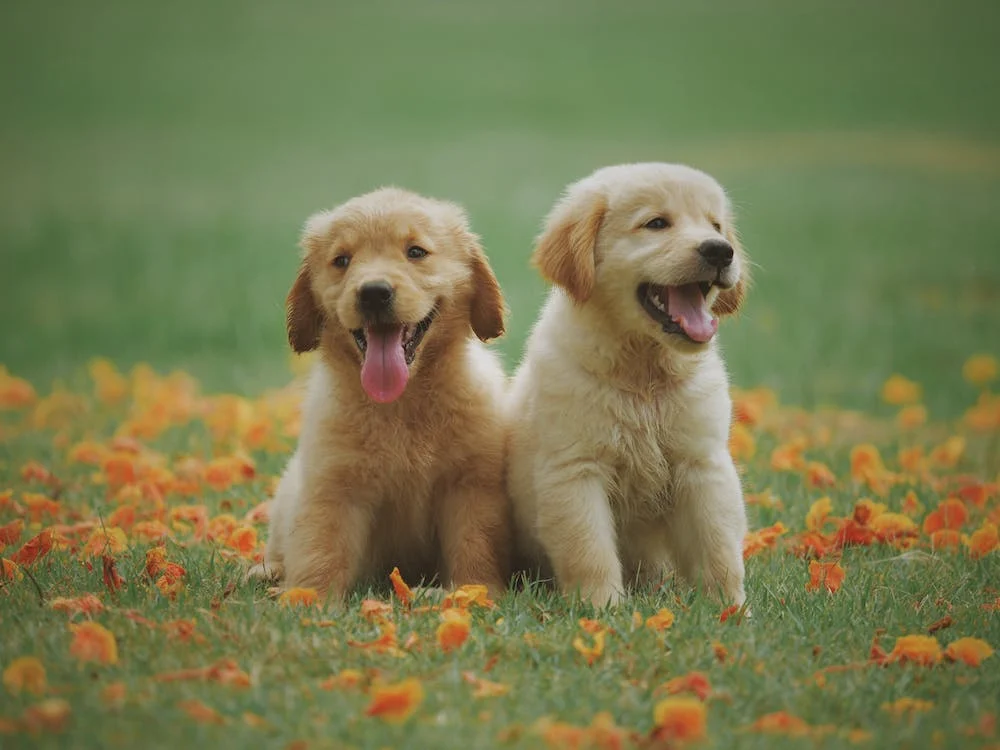
Natural Solutions for Dietary Causes
For suspected dietary causes without other symptoms, try:
Pumpkin: 1-4 tablespoons canned pure pumpkin. The fiber soothes digestion.
Probiotics: Fortify gut flora with veterinarian-recommended probiotic supplements.
Bone Broth: Homemade or low-sodium broth provides electrolytes.
Bland Diet: Boiled chicken and rice gives the gut a rest.
Hydration: Ensure access to fresh, clean water. Dehydration worsens intestinal upset.
Monitor Stool: Note if poop returns to normal brown color in 3-4 days.
Gradual Diet Change: Transition food over 5-7 days to allow adjustment.
These natural remedies can often correct transient digestive irritation and its yellow stool side effect. But if it persists beyond 3-4 days or worsens, promptly call your vet.
When to Visit the Vet for Yellow Stool
Contact your veterinarian if your dog has:
- Prolonged yellow stool exceeding 3-4 days
- Yellow diarrhea or poop with mucus/blood
- Labored, painful defecation
- Loss of appetite, lethargy or vomiting
- Evidence of parasites – worms/fleas
- Unexplained weight loss
- Fever, abdominal tenderness or swelling
While fleeting yellow stool can occur harmlessly, prolonged or severe symptoms warrant medical attention. Catching conditions early vastly improves treatment success.
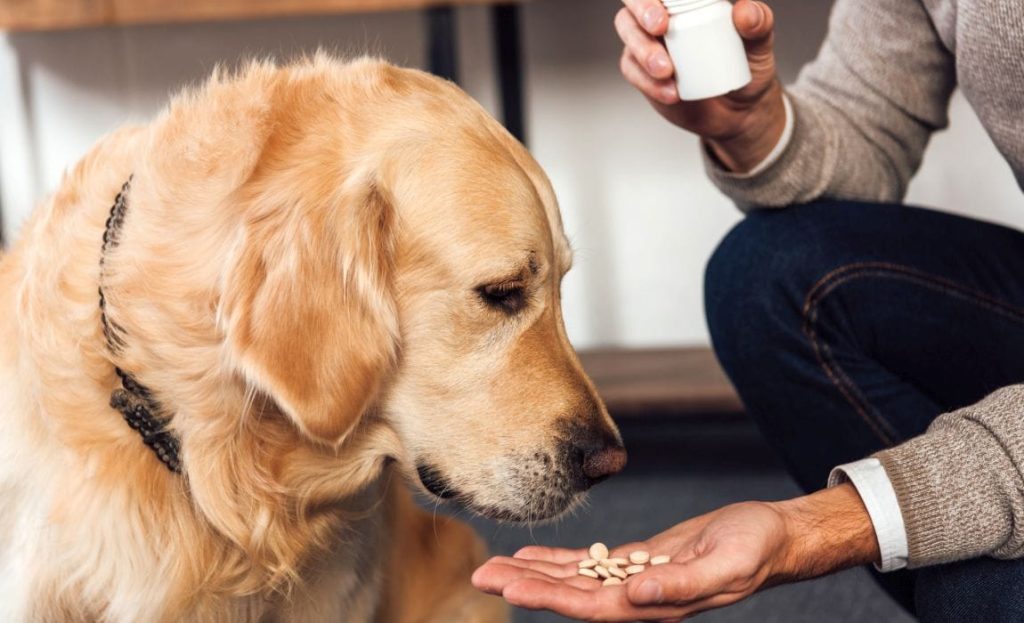
How to Prevent Yellow Balls in a Dog’s Poop
Here are proactive steps you can take to help avoid yellow poop balls in your canine companion.
Transition Diets Gradually
Abruptly changing your dog’s diet causes stomach upset and irregular stool. Their digestive system needs time to adjust to new proteins, fiber levels and ingredients. When switching foods:
- Mix a small amount of new food with the old over 5-7 days
- Progressively decrease the old while increasing the new
- Ensure the transition takes at least 1 week
- Closely monitor stool during and after switching
- Consider probiotic supplements to support digestion
With gradual introduction of new foods, your dog’s tummy stays happier and yellow diarrhea is less likely.
Stick to One Premium Dog Food
Bouncing between various brands and formulas leads to gastric distress. Pick one high-quality dog food that agrees with your pup, and stick with it consistently. Consult your vet about optimal nutrition for your dog’s needs. Steer clear of poor quality or expired products.
Prevent Access to Unsafe Foods and Objects
Dogs are notorious for eating anything within reach. Make sure your pup can’t access:
- Toxic foods like grapes, chocolate, onions etc.
- Rotting garbage and compost
- Non-edible objects they may swallow
- fabric items, small toys, clothing, socks etc.
- Poop from other animals
Ingesting these hazardous items can obstruct intestines or introduce toxins, leading to yellow diarrhea and illness. Dog-proof your home and yard.
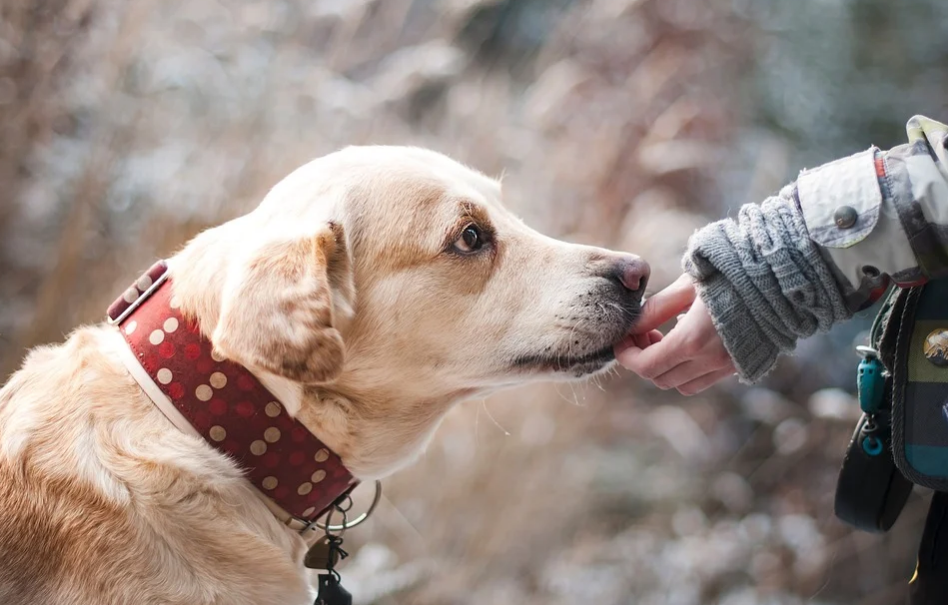
Maintain Good Hygiene
Practicing proper hygiene reduces risk of infections causing yellow poop. Be sure to:
- Pick up poop promptly, disposing in sealed bags
- Regularly wash food/water bowls with soap
- Bathe your dog every few months as needed
- Treat yard for parasites
- Give heartworm, flea and tick prevention monthly
- Have annual fecal checks for parasites
Sanitation prevents contagious pathogens that could sicken your dog.
Ensure Adequate Exercise
Getting adequate exercise encourages regular, healthy digestion and poop habits. Make sure your dog receives 30-60 minutes of activity daily. This stimulates metabolism and intestinal motility to move stool through the colon normally. Potty train dogs to relieve themselves on a consistent schedule.
Have Annual Vet Exams
Wellness exams allow early detection and treatment of health issues before they become severe. Annual bloodwork, urinalysis and other screening tests look for signs of organ dysfunction, parasites and disease. Being proactive preserves your dog’s optimal health and happiness.
While no pet owner can prevent all yellow poop incidents, taking these precautions reduces episodes and catches underlying illness early. Know when to call the vet, and help your dog live their healthiest, happiest life.
